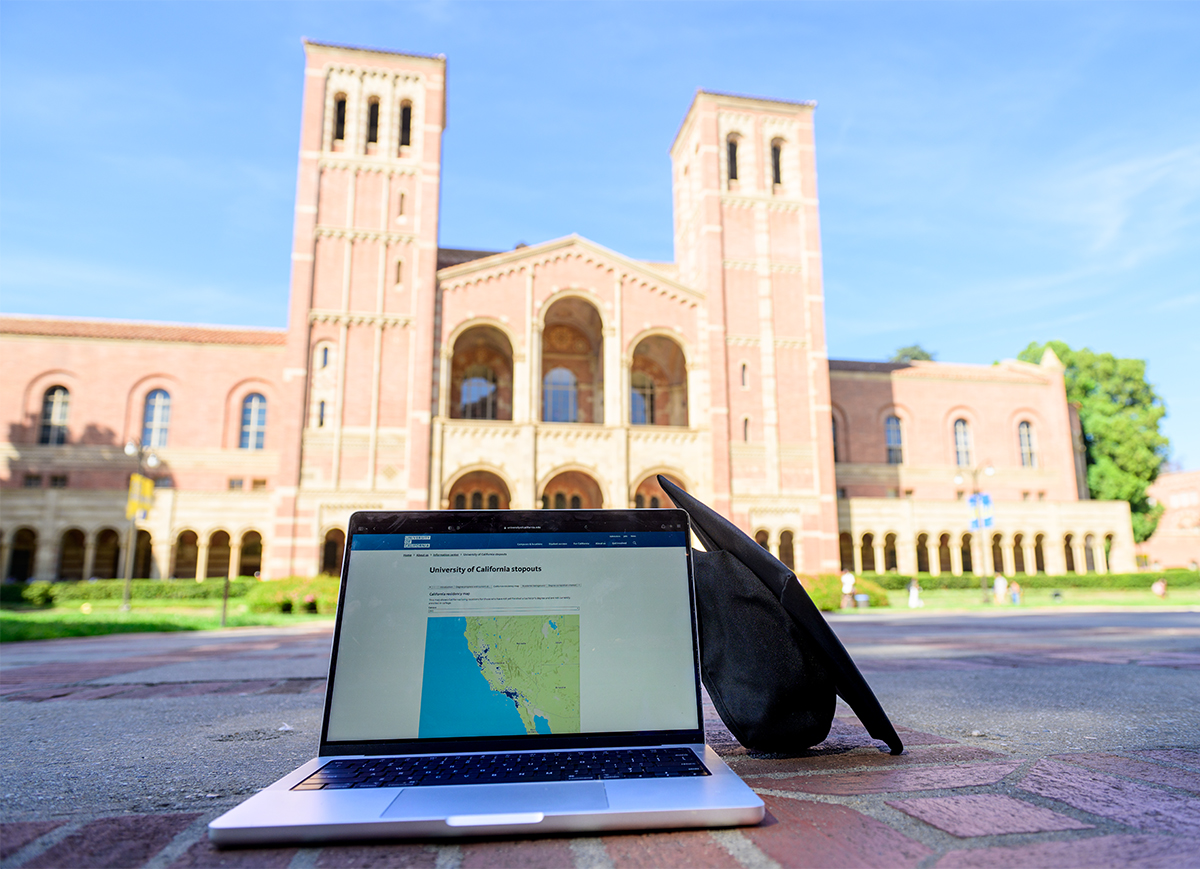UC launches Degree Completion Program to assist reenrolling students

(Photo illustration by David Rimer/Daily Bruin senior staff)
By Lea Ozdere
Sept. 29, 2022 10:59 p.m.
University of California campuses launched the UC Degree Completion Program in August to help former UC students and other California residents with incomplete college degrees earn a degree or certificate.
The program is funded with the remainder of the 2019 California state budget allocated to the UC Office of the President for extensions to implement degree and certificate completion programs, said Marie Martin, director of degree completion programs and project lead for UC Riverside. The initiative is led by UCR and UC Davis and also includes programs at UC Santa Barbara and UC Merced, said Kevin Vaughn, university extension dean for UCR.
The funds are intended for the next two academic years, Vaughn said, ending in the 2023-2024 school year. The campuses are working hard to fulfill the goals of the project in limited time, he added.
The program targets two main audiences: UC stopout students – students who left the UC system without obtaining a degree – and California residents with some college education but no degree, Martin said. The program will be focusing on students who left the UC system between 2008 and 2020, she added.
Out of 39 million adults in the United States with some college education and no degree, nearly 6.4 million – the largest portion – are in California, according to an article from Inside Higher Ed.
“Regionally speaking, we’re sort of a hot spot where we can really make an impact in this area and help students come back and complete their degrees,” Martin said.
The universities are reaching out to students, aiming to engage first-generation students and underrepresented minority students, Martin said, adding that both groups have historically high stopout rates.
UCR identified about 6,600 students who stopped out of their university with good academic standing between 2008 and 2020, Martin said. The program’s goal is to serve 800 students over the next two years, aiming for 50% to be underrepresented minorities and 45% first-generation students, she added.
The UC system is hoping to reduce its contribution to the stopout student population while also providing resources for reenrollment, Martin added.
This program also serves a broader UC goal to enroll 23,000 more in-state students over the next eight years, Vaughn said.
Students interested in returning to school will go through the typical readmission processes for their campus, but the program is offering more assistance, Martin said. To address barriers students may face, the UC will provide direct funding and pre-entry coursework for interested, academically dismissed students, Martin said, adding that certification pathways are also available.
“We were looking for a way to provide increased access to these students and help them overcome some of the challenges and barriers that a lot of students face that prevent them from completing,” Martin said.
The data also show that stopout students were more likely to be recipients of the Pell Grant – a federal grant from FAFSA – said Kelly Nielsen, assistant director of the Center for Research and Evaluation at UC San Diego in the division of Extended Studies.
“I think it’s a responsibility of the California public to make sure that our least advantaged get everything they need to finish,” Nielsen said.
The University is also planning to offer scheduling flexibility through online or hybrid courses to allow more students to successfully obtain their degrees or certificates, Vaughn said.
One main objective is for the Degree Completion Program to be completely self-supporting by the end of the two-year grant period to continue this initiative, Vaughn said.
“I really believe that, as we work on this project and serve these adults, we’re going to start chipping away at the 39 million adults that have some college, but no degree,” Vaughn said.


